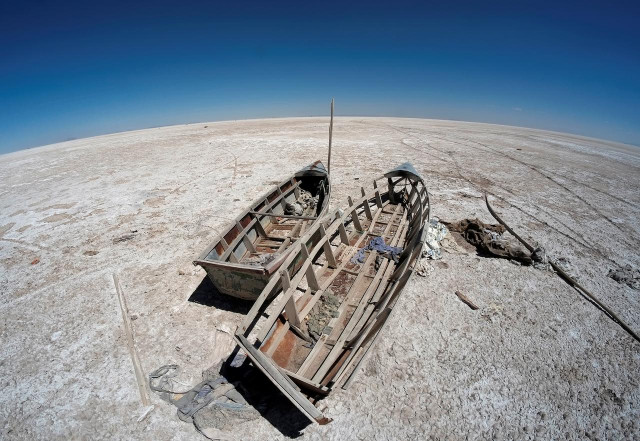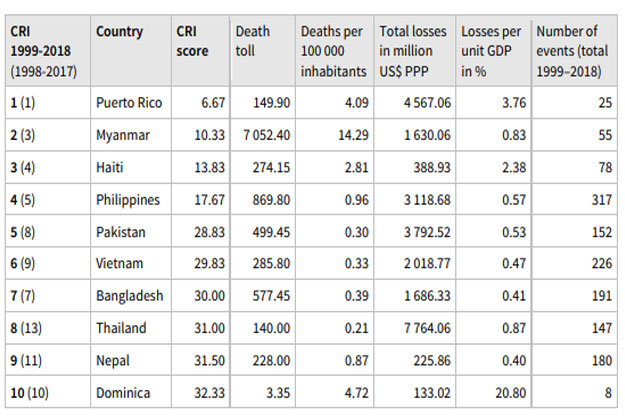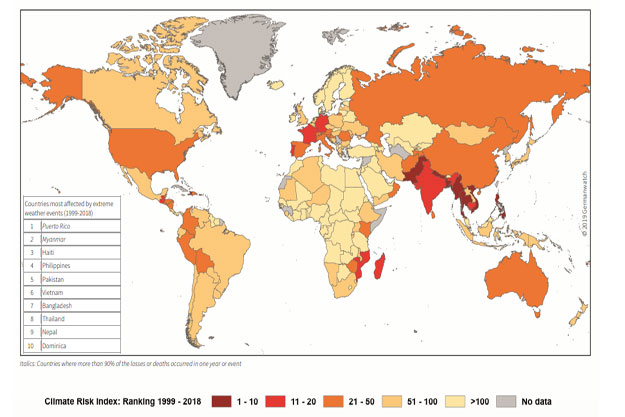Climate change: 'Pakistan 5th most affected country from 1999 to 2018'
Puerto Rico, Myanmar and Haiti have been identified as the most affected countries in this 20-year period

Representational image. PHOTO: REUTERS
 The Long-Term Climate Risk Index (CRI): The 10 countries most affected from 1999 to 2018 (annual averages) PHOTO: GLOBAL CLIMATE RISK INDEX 2020
The Long-Term Climate Risk Index (CRI): The 10 countries most affected from 1999 to 2018 (annual averages) PHOTO: GLOBAL CLIMATE RISK INDEX 2020Over the past few years, another category of countries has been gaining relevance. Countries like Haiti, Philippines and Pakistan continuously rank among the most affected countries both in the long-term index and in the index for the respective year.
“Puerto Rico, Myanmar and Haiti have been identified as the most affected countries in this 20-year period. They are followed by the Philippines, Pakistan and Vietnam,” said the Germanwatch report.
Pakistan needs $14b annually to combat climate change
Apart from Pakistan, the countries on the list of the 10 countries most affected by climate change include (1) Puerto Rico, (2) Myanmar, (3), Haiti, (4) Philippines, (6) Vietnam, (7) Bangladesh, (8) Thailand, (9) Nepal and (10) Dominica.
“Japan, Philippines and Germany are at the top of the list of the most affected countries in 2018. Between 1999 and 2018, Puerto Rico, Myanmar and Haiti were the countries most affected by extreme weather events,” added the Germanwatch report.
“Altogether, about 495,000 people died as a direct result of more than 12 000 extreme weather events globally and losses between 1999 and 2018 amounted to around $3.54 trillion (in purchasing power parities).”

The report said, “Heatwaves were one major cause of damage in 2018. Of the ten most affected countries in 2018, Germany, Japan and India were suffering from extended periods of heat. Recent science has found a clear link between climate change and the frequency and severity of extreme heat. In Europe, for example, extreme heat spells are now up to 100 times more likely to occur than a century ago. Furthermore, due to a lack of data, the impacts of heatwaves, for example on the African continent, may be underrepresented.”
Japan, Philippines and Germany remained the most affected countries in 2018 followed by Madagascar, India and Sri Lanka, it said.
“A string of deadly heatwaves took its toll on millions around the world in 2018. In India, temperatures of up to 50°C were measured, the extreme water stress was omnipresent,” added the report.


















COMMENTS
Comments are moderated and generally will be posted if they are on-topic and not abusive.
For more information, please see our Comments FAQ